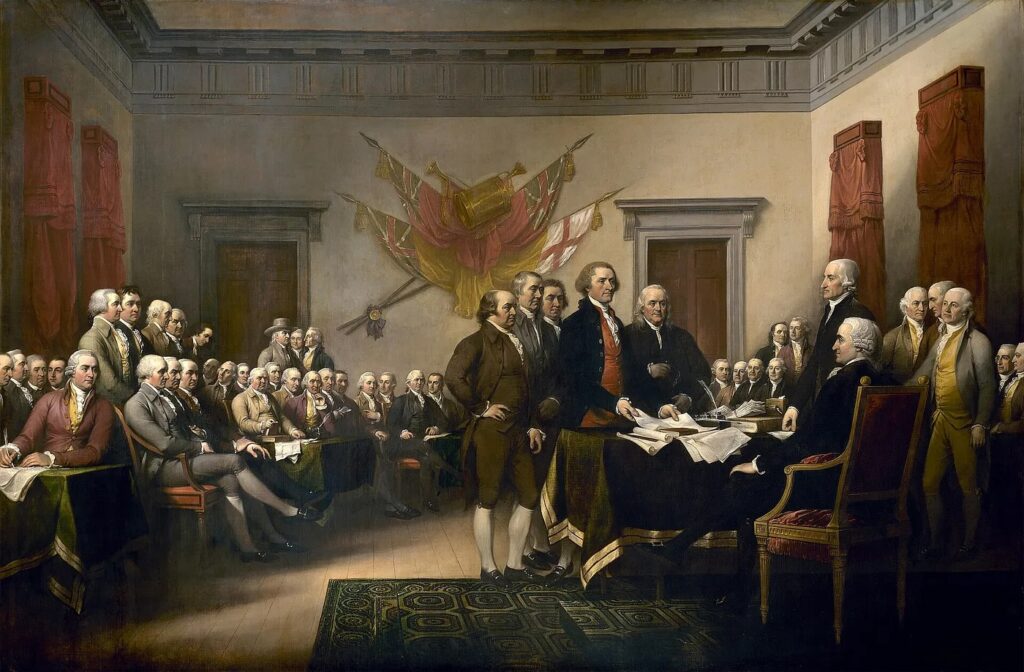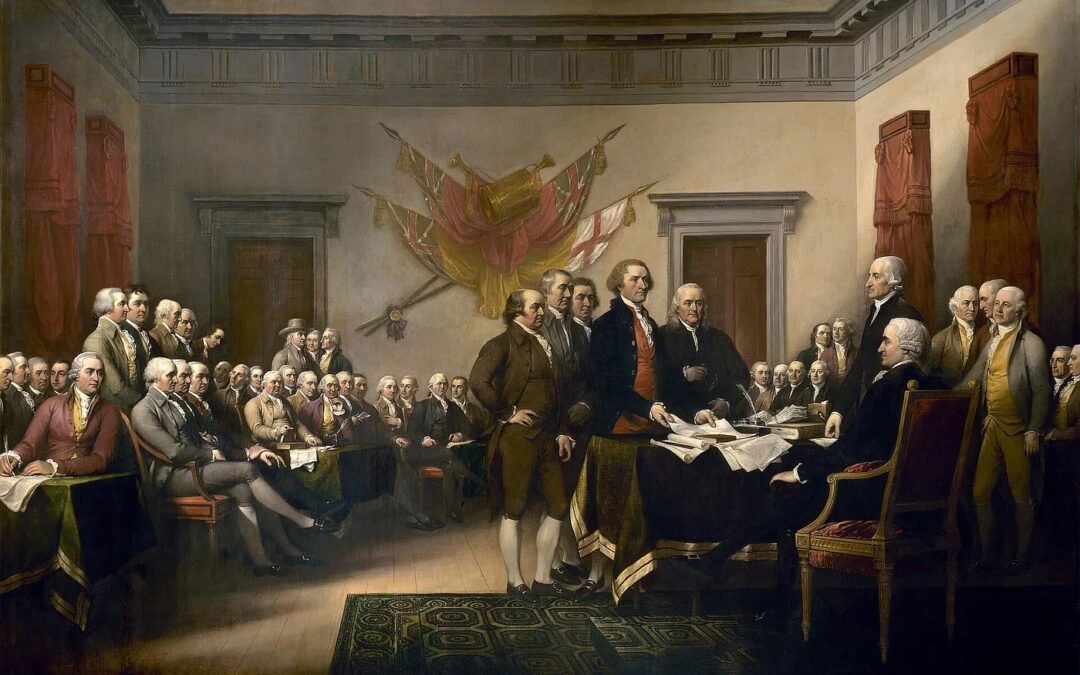
Declaration of Independence by John Trumbull (1819) (Wikipedia)
In the Declaration of Independence, Thomas Jefferson, writing on behalf of the Continental Congress, proclaimed that all people have an inalienable right to life, liberty and the pursuit of happiness. These stand as guiding principles for our republic, shaping both our system of government and the public’s expectations for their nation.
A bipartisan duo of elected leaders recently argued that we’re doing too little to advance that third and vitally important principle, and they want to find ways to help Americans better pursue the promise of happiness. That’s a worthwhile discussion and one worth following as it takes shape.
Each year, the Gallup World Poll compiles a World Happiness Report, using quality-of-life survey data from 140 nations, averaged over three years, along with input from “interdisciplinary experts from the fields of economics, psychology, sociology and beyond” to rank countries based on their population’s happiness.
The United States landed at No. 23, the first time our nation fell outside the top 20 since Gallup began this effort 12 years ago. Costa Rica, Kuwait, Slovenia and the United Arab Emirates all ranked higher.
Particularly troubling is the steep decline in happiness among young people. That tracks with polling from the Harvard Kennedy School’s Institute of Politics released in April that found only 9% of voters aged 18-29 believe the country is headed in the right direction.
For U.S. Sen. Chris Murphy, a Democrat from Connecticut, and Utah Gov. Spencer Cox, a Republican, the report confirmed something they had been discussing for a while: that despite the high quality of life many Americans enjoy, people seem more dour, anxious and, well, unhappy than ever before.

